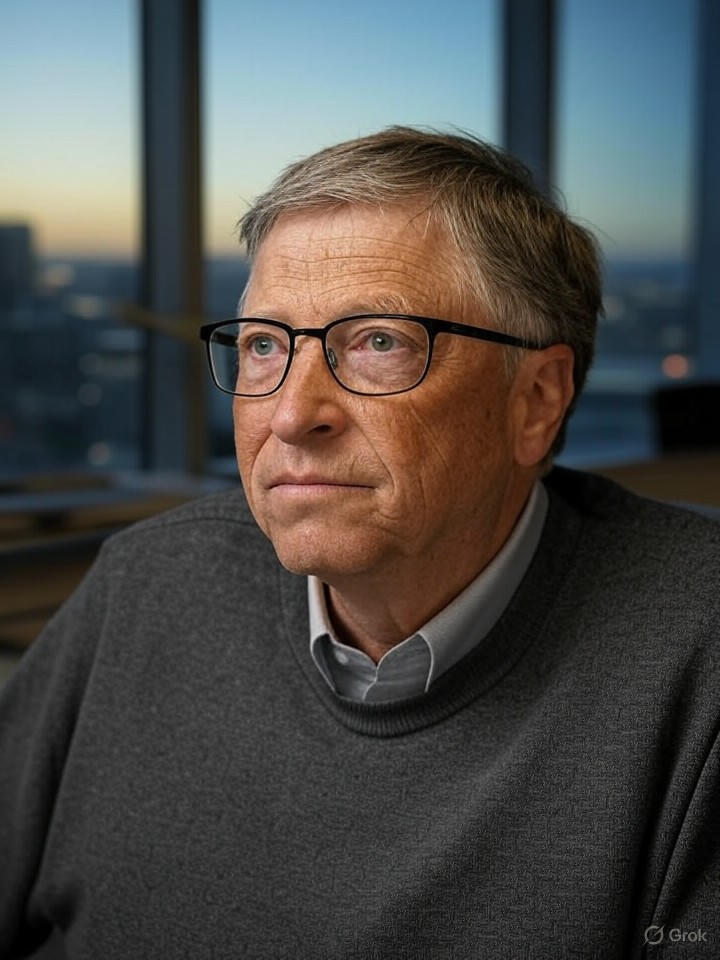Bill Gates, the billionaire philanthropist and Microsoft co-founder, has long been a prominent voice in the climate debate, often warning of catastrophic consequences if global warming isn’t curbed aggressively. But in a recent shift that has sparked discussion among environmentalists and policymakers, Gates is now tempering those dire predictions, arguing that climate change, while serious, won’t spell the end for humanity. Instead, he’s urging a pivot toward bolstering aid for the world’s poorest nations, where the impacts of a warming planet are felt most acutely.
This evolution in Gates’ thinking was detailed in a memo he published on his personal blog, as reported by Startup News, where he explicitly retreats from what he calls the “doomsday view” of climate change. Gates emphasizes that the focus should be on preventing human suffering rather than obsessing over temperature targets or emission reductions alone. He points out that even if global temperatures rise, innovations in health, agriculture, and energy can mitigate the worst effects, particularly for vulnerable populations in developing countries.
A Shift Toward Pragmatism
Gates’ new stance comes amid growing scrutiny of alarmist climate narratives, which some critics argue have led to policy paralysis or misallocated resources. In his memo, highlighted in a Baltimore Sun article, he writes that “our chief goal should be to prevent suffering, particularly for those in the toughest conditions who live in the world’s poorest countries.” This marks a departure from his earlier books and speeches, where he framed climate change as an existential threat requiring immediate, all-encompassing action.
Industry insiders see this as a pragmatic recalibration, especially as Gates’ foundation invests billions in global health and poverty alleviation. For instance, he argues that eradicating diseases like malaria could save more lives than shaving a fraction of a degree off global warming, a point echoed in coverage from Fox News. This perspective aligns with his long-standing advocacy for foreign aid, as seen in his past social media posts where he stressed that cutting aid budgets leads to unnecessary child deaths in low-income regions.
Implications for Global Policy
The timing of Gates’ comments is notable, arriving just ahead of international climate summits like COP30, as noted in an analysis by AMAC Newsline. By downplaying apocalyptic scenarios, Gates is pushing for a more balanced approach that integrates climate adaptation with development goals. He cites examples like drought-resistant crops and affordable clean energy as tools to help smallholder farmers in Africa and Asia, who bear the brunt of erratic weather patterns without contributing much to emissions.
Critics, however, worry this could dilute urgency around decarbonization efforts. Environmental groups have pushed back, arguing that Gates’ influence might encourage complacency among corporations and governments. Yet, supporters in the tech and philanthropy sectors applaud the focus on actionable aid, pointing to Gates’ track record with initiatives like the Global Fund, which has saved millions of lives through targeted interventions.
Balancing Innovation and Equity
At the heart of Gates’ argument is a call for innovation tailored to the Global South. In a piece from Business Insider, he’s quoted emphasizing that poor countries will suffer disproportionately from heatwaves, floods, and food shortages, but that investments in health infrastructure can build resilience. This echoes his earlier writings, such as in “How to Avoid a Climate Disaster,” where he advocated for green technologies accessible to all income levels.
For industry leaders, this shift signals opportunities in sectors like biotech and renewable energy, where solutions can address both climate and poverty. Gates’ foundation has already funneled resources into adaptive agriculture, demonstrating that economic growth in developing nations can coexist with environmental progress. As global debates intensify, his voice adds a layer of nuance, reminding stakeholders that human welfare, not just planetary metrics, should guide the path forward.
Looking Ahead: Aid as Adaptation
Ultimately, Gates’ retreat from doomsday rhetoric doesn’t mean abandoning climate action; it’s about reprioritizing. Reports from Futurism capture his optimism that humanity can adapt through ingenuity, provided aid flows to those most in need. This could influence donor nations and private investors to rethink funding models, favoring integrated strategies over siloed environmental policies.
As the world grapples with rising temperatures, Gates’ perspective offers a blueprint for equitable progress, blending philanthropy with practical innovation to safeguard the vulnerable without succumbing to despair.
Images are for reference only.Images and contents gathered automatic from google or 3rd party sources.All rights on the images and contents are with their legal original owners.

